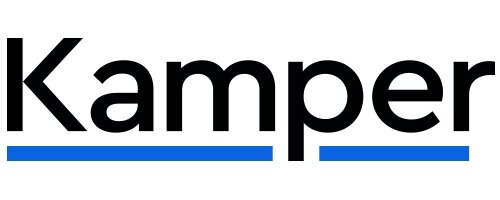2025-26 Budget Update
On Tuesday, March 25 2025, Treasurer Jim Chalmers delivered the 2025–26 Australian Federal Budget. New tax cuts and additional cost-of-living relief were the centrepieces of the Budget.
This Budget was inevitably influenced by the upcoming Federal election, which must take place by 17 May 2025. Keeping in mind that these announced measures are contingent on the passage of legislation. With an election approaching, it is unlikely that this will happen until a new Parliament is in session.
As a result, the Budget focused on cost of living (such as energy cost relief), Medicare, and healthcare, along with new personal tax cuts. The ATO will also be allocated additional funding to increase tax compliance.
We have summarised key insights below, first focusing on personal tax, followed by implications on businesses and other non-tax measures which may be of interest.
PERSONAL TAX
In summary:
· All Australian taxpayers will receive further personal income tax cuts from 1 July 2026.
· The Medicare levy low-income thresholds will increase from 1 July 2024, allowing lower income individuals to receive additional cost-of-living relief.
-
The Government has detailed their plan to reduce personal income tax rates starting from 1 July 2026. These cuts are designed to build upon the existing tax reductions that took effect on 1 July 2024.
The changes to tax rates are summarised in appendix A below.
-
To be consistent with prior years, the Government has announced to increase the Medicare levy low-income thresholds from 1st July 2024, as detailed in appendix B below.
-
The Government has detailed their focus on assisting students with their HELP debt balance and hence will introduce a one-off 20% reduction on 1st June 2025 (before the next indexation is applied). It has been proposed that HELP repayments will now be calculated based only on income above the new $67,000 threshold, as opposed to being based on total annual income.
-
As anticipated, the current electricity subsidy of $75 a quarter will be extended through to 31 December 2025.
-
The Personal Income Tax Compliance Program will be extended for 2 years from 1 July 2026, to allow the ATO to address non-compliance issues e.g. incorrect income reporting and overclaimed deductions.
The Extension of the Tax Integrity Program will enable the ATO to continue its proactive and preventive program to ensure timely payment of tax and superannuation liabilities by medium and large businesses.
BUSINESS
In summary:
· No changes to small business tax concessions
· Managed investment trusts
· Foreign resident capital gains tax regime
· No changes to private company deemed dividend rules
-
Ahead of the 2025-26 Federal Budget, the Government announced to amend income tax laws to ensure that the concessional withholding tax rates are not misused and that legitimate, widely held foreign-based investors can still access concessional withholding tax rates on eligible distributions in Australia. This was echoed in the 2025-26 Federal Budget to ensure that Australia continues to attract foreign investment in its infrastructure.
-
The Government aims to strengthen the foreign resident capital gains tax regime, which will:
• clarify and broaden the types of assets on which foreign residents are subject to CGT;
• amend the point-in-time principal asset test (PAT) to a 365-day testing period; and
• require foreign residents disposing of shares and other membership interests exceeding $20
million in value to notify the ATO, prior to the transaction being executed.
-
Despite the Full Federal Court’s landmark decision in the Bendel case, there were no announcements in relation to the general application of the Division 7A rules.
There was no discussion in the 2025-26 Federal Budget which clarified or amended the existing Division 7A law in relation to the treatment of an unpaid present entitlement between a trust and a private company.
OTHER NON-TAX MEASURES
-
Under the Help to Buy scheme, the Government aims to provide an equity contribution of up to 40% to assist eligible home buyers to purchase a home with a smaller deposit and mortgage. The scheme will increase income caps from $90,000 to $100,000 for individuals and from $120,000 to $160,000 for joint applicants and single parents. Additionally, property price caps will also be increased and linked with the average house price in each state as opposed to the dwelling price.
-
The Government will take action to boost Australia’s housing supply and ensure foreign investors comply with requirements to put vacant land to use for residential and commercial developments within reasonable timeframes.
An example of a tactic is banning foreign persons (including temporary residents and foreign-owned companies) from purchasing established dwellings for two years from 1 April 2025, unless an exception applies. The ATO will be provided funding to enforce bans and investigate non-compliance.
-
The Government will provide $6.7 million in the 2026 income year to continue to build on the National Anti-Scam Centre within the Australian Competition and Consumer Commission (‘ACCC’) which will aim to protect consumers and businesses from scams.
-
The Government has announced that they will ban non-compete clauses for workers paid up to $175,000 which aims to end restrictive rules that currently prevent employees moving to a rival business or working on their own. Proposed changes to the Fair Work Act will stop non-compete clauses in employment contracts. Some workers which may benefit from this reform are workers in childcare, construction and employees in the beauty industry.
Appendix A: Changes to Individual Tax Rates
Appendix B: Changes to Medicare levy low-income thresholds


